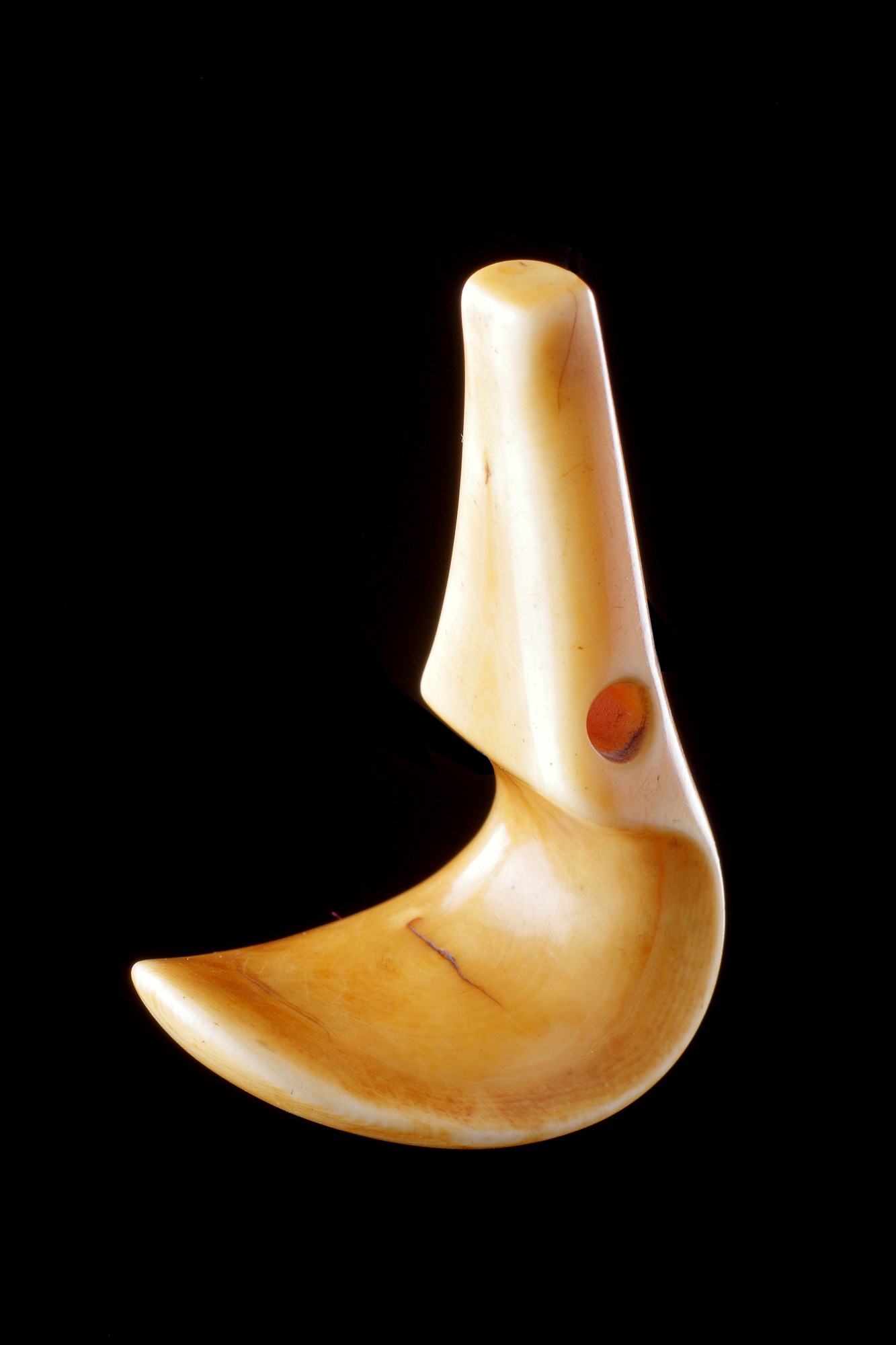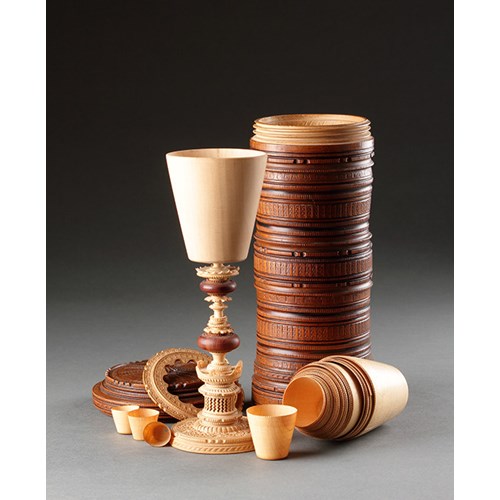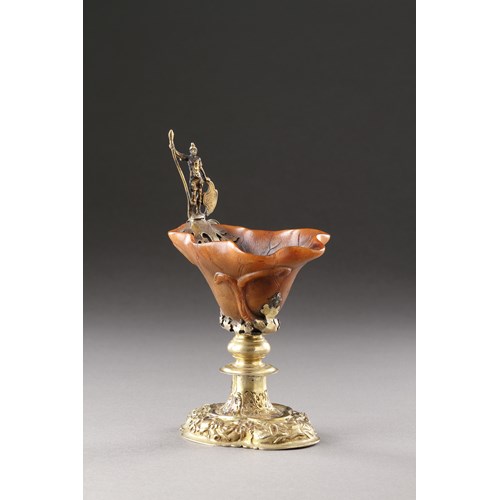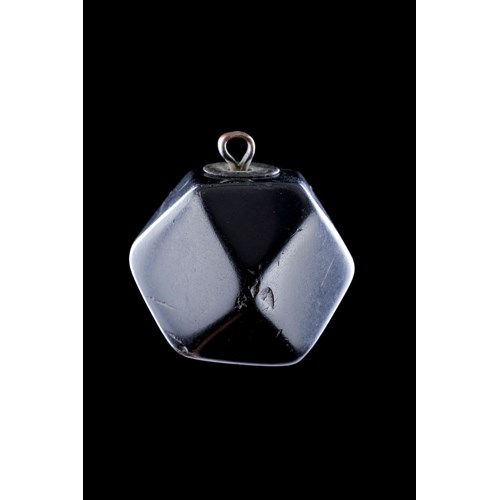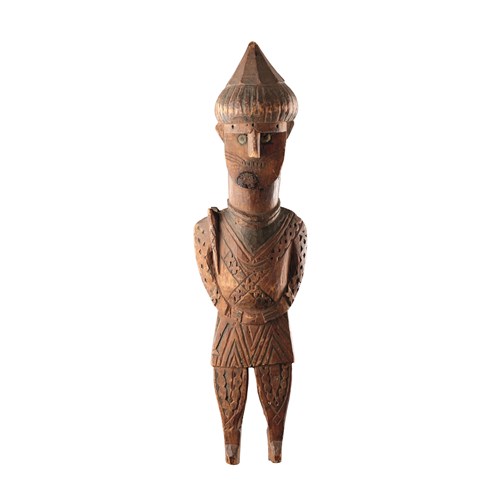Polynesian Royal Whale Tooth Pendant ‘Lei Niho Palaoa’
Period 1800-1850
Medium Sperm whale tooth, whale tooth
Dimension 7.5 x 3.5 x 5 cm (3⁰/₁ x 1³/₈ x 2⁰/₁ inches)
Hawaii
Early 19th Century
SIZE: 7.5cm high, 3.5cm wide, 5cm deep - 2¾ ins high, 1⅓ ins wide, 2 ins deep
Period: 1800-1850
Medium: Sperm whale tooth, whale tooth
Dimension: 7.5 x 3.5 x 5 cm (3⁰/₁ x 1³/₈ x 2⁰/₁ inches)
Provenance: Ex Private English collection
cf: For two examples see Finch and Co, no. 80, catalogue no. 4, 2002 and no. 13, catalogue no. 31, 2018
Literature: Like the crowns of European royalty, hook shaped pendants made from the teeth of sperm whales were worn by Hawaiian ‘Ali’i’ as marks of noble birth. They served as visual symbols of exalted status and could be worn by persons of high rank of both genders. Often worn on necklaces made from tightly braided coils of human hair in multiple strands strung with finely plaited and braided Olonā fibres. ‘Touchardia Latifolia’ is commonly known as ‘Olonā’ in Hawaiian and is a species of flowering shrub that belongs to the nettle family. It has always been cultivated on Hawaii and was considered one of the finest grades of fibre, its intertwining strands making it one of the strongest natural fibres on earth. It was often used as cordage on the wrist loop of ‘pāhoa’ daggers, and for fastening sharks teeth on the heads of ‘Leiomano’.
‘Lei Niho Palaoa’ were worn as formal regalia as the 19th century Hawaiian historian David Malo has written: ‘in battle or on occasions of ceremony and display’. The name of these pendants translates as ‘whale tooth necklace’ which was the preferred material used in the early 19th century when it could only be obtained through the chance stranding’s of sperm whales as they passed by on their annual migrations. Archaeologists have found other pendants in shell, bone and coral which indicates that it is the distinctive ‘hook’ shaped form of the pendant, rather than the material, which serves as the symbol of chiefly authority.
More artworks from the Gallery


